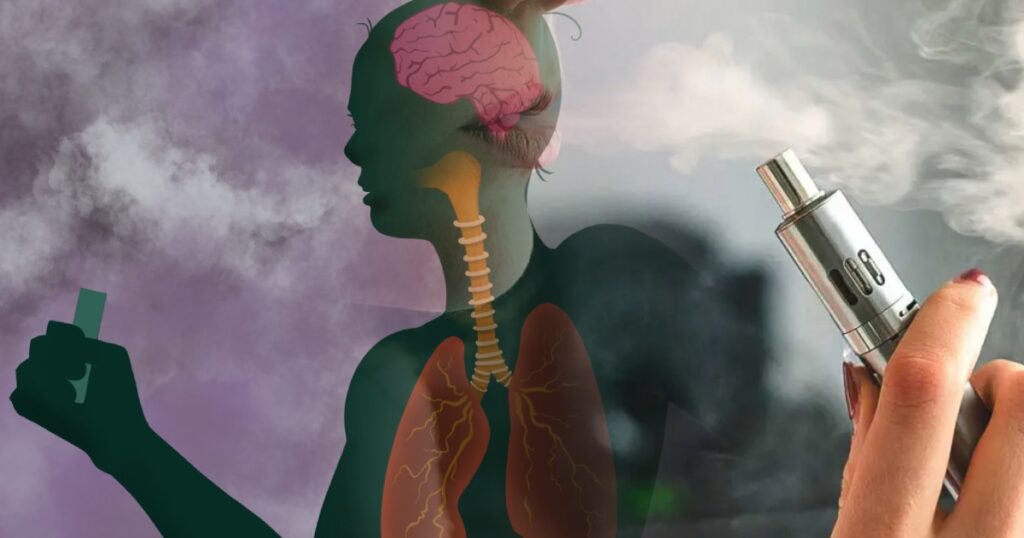Risks of Cannabis Vape: Understanding Health Implications
Vaping cannabis, often considered a safer alternative to smoking, has grown in popularity due to its convenience and perceived reduced harm. However, this method of consumption is not without risks. Research suggests that while vaping may release fewer combustible toxins than traditional smoking, it can still expose users to harmful substances, particularly when the cannabis oil is adulterated or poorly manufactured. Understanding the short-term and long-term effects of vaping cannabis oil is crucial, as these can range from immediate respiratory issues to potential long-term health consequences.
Health studies have begun to shed light on the impacts of regular vape use, noting concerns such as the risk of lung injury and exposure to high-potency cannabis, which might have more pronounced effects on your mental and physical health. The long-term implications are still being investigated, but early evidence suggests potential links to chronic issues affecting pulmonary and cardiovascular health. Being aware of these risks and keeping informed through ongoing scientific research can help ensure that your use of cannabis vape is tempered with a clear understanding of its potential adverse effects.
Key Takeaways
- Vaping cannabis may introduce harmful substances to your body.
- The long-term health consequences of vaping are still under investigation.
- Awareness and scientific research are crucial to understanding the impact of vaping.
Health Implications of Vaping Cannabis
As you consider vaping cannabis, it’s vital to understand the specific health implications it may have. The use of cannabis vape has been linked to a variety of health concerns, affecting lung health and increasing the risk of addiction and mental health issues, along with the potential for cancer and respiratory diseases.
Lung Health and Injury
Vaping cannabis can affect your lung health significantly. Unlike traditional smoking, vaping may reduce exposure to some toxins. However, it is associated with various lung injuries, including a condition called EVALI (E-cigarette or Vaping product use-associated Lung Injury), often linked to the use of vitamin E acetate found in many THC vaping products. Acute lung injury is a serious concern, as it can lead to severe respiratory distress and even death.
Addiction and Mental Health
When you vape cannabis, you are at risk for addiction and mental health issues. Cannabis can be addictive, and its use is especially problematic among adolescents and young people whose brains are still developing. Vaping delivers high-potency cannabis, which might exacerbate health risk behaviors associated with substance use, potentially leading to the development of mental health disorders such as anxiety and depression.
Cancer and Respiratory Diseases
While traditional tobacco smoking is well recognized for its cancer risks, the long-term effects of vaping cannabis on cancer rates are still being researched. However, it is known that some substances in vape fluids may have potential carcinogenic effects. Moreover, chronic usage can contribute to respiratory system issues, such as chronic bronchitis, due to exposure to irritants and other harmful chemicals that can damage the respiratory tract.
Remember, vaping cannabis is not without risks, and the implications on your health can be significant. Stay informed and consider these potential consequences before making your choice.
Regulatory and Public Health Perspectives
The regulation of cannabis vape involves navigating the intricate interplay of public safety, medicinal benefits, and the risks of unregulated use. Understanding this landscape is crucial for comprehending both the potential benefits and dangers.
Regulations and Safety
The Food and Drug Administration (FDA) has not officially approved vaping products containing cannabinoids, including CBD, for medicinal use. That leaves medical marijuana users without standardized, FDA-regulated vape products. Safety is paramount; you risk exposure to contaminants and inconsistent dosing without regulation. The Centers for Disease Control and Prevention (CDC) has specifically investigated cases of lung injury associated with vaping, highlighting chemical exposure risks.
Impact of Black Market and Advertising
The black market for cannabis products, including vapes, circumvents regulatory safeguards, potentially exposing you to more significant health risks. Advertisements targeting youth, especially 12th graders, can increase health risk behaviors. Unregulated products may contain harmful substances, violate safety guidelines, or promote misleading health claims.
Public Health Interventions and Education
Public health interventions are critical for mitigating risks. Education campaigns by entities like the CDC provide information on the heart health risks of cannabinoids. Your awareness of intervention strategies, like age restrictions and crackdown on false advertising, is vital in understanding the broader efforts to ensure public safety and informed use of cannabis vape products.
Frequently Asked Questions
Before exploring these FAQs, understand that vaping can carry risks to lung health, and various methods and products have specific concerns.
What are the potential lung health impacts linked to vaping?
Vaping has been associated with several cases of acute lung injury, with symptoms ranging from coughing and shortness of breath to more severe respiratory distress. The exact mechanisms are still under investigation but appear linked to inhaling harmful substances in vape liquids.
Can using a dry herb vaporizer reduce respiratory issues compared to other inhalation methods?
Using a dry herb vaporizer might reduce exposure to some toxic emissions compared to traditional smoking because it heats the cannabis without burning it. However, whether this significantly reduces respiratory issues is still a topic under investigation, with existing studies offering mixed results.
How might the potency levels of vape products influence health risks?
High-potency vape products can expose you to higher levels of THC, leading to more pronounced psychoactive effects and potentially increasing the risk for dependence or other adverse effects. There’s also concern that increased potency could exacerbate health risks, especially in young adults and adolescents.
Are there any specific dangers associated with vaping live resin?
Vaping live resin, which contains a high concentration of cannabinoids and terpenes, may pose risks similar to other high-potency cannabis products. However, additional research is needed to understand the full scope of risks, especially concerning any potential additives or the effects of terpenes when inhaled in concentrated forms.
What long-term effects can adults experience from habitual vaping?
Long-term effects of habitual vaping can include chronic bronchitis, respiratory issues, and potential changes to brain structure and function if used in high quantities. Given the relative newness of vaping, more longitudinal research is necessary to outline these risks entirely.
Does inhaling CBD via vaping pose similar risks to lung health as other forms of cannabis?
While CBD is different from THC in its effects, inhaling CBD via vaping could pose similar respiratory risks associated with the act of vaping itself. This includes potential lung irritation and damage from the inhalation of vaporized substances, although specific studies on CBD are less common.





